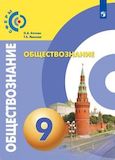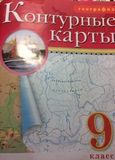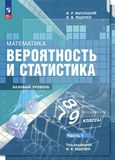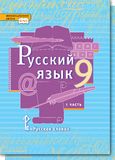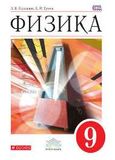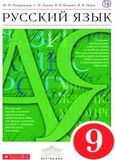Стр.99 Unit 7 Вопреки трудностям ГДЗ Комарова Ларионова 9 класс
Грамматика
Модальные глаголы долженствования, запрета и возможности
долженствование и запрет (настоящее время)
• Обычно нет разницы в значении между must и have to. Однако мы склонны использовать must, когда высказываем свои личные чувства, и have to для фактов.
• Мы используем don't have to, когда нет обязательств (что-то не является необходимым).
Sometimes Alain is invited to do a stunt, so he doesn't always have to avoid the police. (Иногда Алена приглашают сделать трюк, поэтому ему не всегда нужно избегать полиции.)
• Мы используем mustn't, когда что-то запрещено. У него не то же значение, что у don't have to.
You mustn't use this lift. (Вы не должны пользоваться этим лифтом.) (Это запрещено –возможно, он не работает и это опасно).
You don't have to use this lift. (Вы не должны пользоваться этим лифтом.) (Это не обязательно – есть другие лифты, или вы можете подняться по лестнице пешком).
• После must мы используем инфинитив без to.
You must wait here. V (Вы должны подождать здесь.)
You must to wait here. X
• Мы используем has to в третьем лице и do/does в вопросах и отрицании.
утвердительные предложения (долженствование)
Я / Ты / Мы / Они / Он / Она / Оно должен/должны/должна проверить.
отрицательные предложения (долженствование отсутствует)
Я / Ты / Мы / Они / Он / Она / Оно не должен/должны/должна платить.
отрицательные предложения (запрет)
Я / Ты / Мы / Они / Он / Она / Оно должен/должны/должна взбираться.
возможность/способность (настоящее время)
• Мы используем can для обозначения способности.
Alain Robert can climb the world's tallest skyscrapers. (Ален Робер может взбираться на самые высокие небоскребы в мире.)
He can't rest until he reaches the top. (Он не может успокоиться, пока не достигнет вершины.)
• После can мы используем инфинитив без частицы to.
He can climb buildings without ropes. V (Он может взбираться на здания без веревок.)
He can to climb buildings without ropes. X
долженствование (прошедшее время)
• Мы используем had to в прошедшем времени. Мы никогда не используем must в прошедшем времени.
We had to tell the security guard. V (Мы должны были сказать охраннику.)
We musted tell the security guard. X
• Мы используем didn't have to для обозначения отсутствия обязательств в прошлом.
He didn't have to go to prison – he had to pay a large fine. (Ему не пришлось сесть в тюрьму – ему пришлось заплатить большой штраф.)
возможность/способность (прошедшее время)
• Мы используем could для обозначения способности в прошлом.
He could climb mountains without ropes. (Он мог взбираться на горы без веревок.)
She couldn't swim when she was six. (Она не умела плавать, когда ей было шесть лет.)
Модальные глаголы суждения и возможности
• Мы используем must и can't для суждений.
• Мы используем must, когда уверены в чем-то, потому что этому есть логическое обоснование.
Sandra has won the competition. She must be happy. (Сандра выиграла конкурс. Она, должно быть, счастлива.)
• Мы используем can't, когда уверены, что что-то невозможно.
You're making a lot of mistakes. You can't be paying attention. (Ты делаешь много ошибок. Ты не можешь быть внимательным.)
• Мы используем may или might, если думаем, что что-то возможно, но не уверены.
He finds it difficult to read and write. He might be dyslexic. (Ему трудно читать и писать. Возможно, у него дислексия.)
Приведем выдержку из задания из учебника Комарова, Ларионова 9 класс, Русское слово:
Grammar
Modals of obligation, prohibition and ability obligation and prohibition (present)
There is usually no difference in meaning between must and have to. However, we tend to use must when we give our personal feelings and have to for facts.
We use don't have to when there is no obligation (something isn’t necessary).
Sometimes Alain is invited to do a stunt, so he doesn't always have to avoid the police.
We use mustn't when something is prohibited. It doesn’t have the same meaning as don't have to.
You mustn't use this lift. (It’s prohibited - maybe it doesn't work and it’s dangerous.)
You don't have to use this lift. (It’s not necessary - there are other lifts, or you can walk up the stairs.)
After must we use the infinitive without to.
You must wait here.
You must to wait here.
We use has to in the third person and do/does in questions and the negative.
affirmative (obligation)
I / You / We / They He / She / It have to / must has to / must check.
negative (no obligation)
I / You / We / They' don't have to He / She / It
doesn’t have to pay.
negative (prohibition)
I / You / We / They He / She / It mustn't climb
ability (present)
We use can for ability.
Alain Robert can climb the world's tallest skyscrapers.
He can't rest until he reaches the top.
After can we use the infinitive without to.
He can climb buildings without ropes.
He can to climb buildings without ropes.
obligation (past)
We use had to in the past. We never use must in the past.
We had to tell the security guard.
We musted tell the security guard.
We use didn't have to for no obligation in the past.
He didn't have to go to prison - he had to pay a large fine.
ability (past)
We use could for ability in the past.
He could climb mountains without ropes.
She couldn't swim when she was six.
Modals of deduction and possibility
We use must and can't for deduction.
We use must when we are certain about something because there is a logical explanation for it.
Sandra has won the competition. She must be happy.
We use can't when we are certain that something is impossible.
You're making a lot of mistakes. You can't be paying attention.
We use may or might if we think something is possible, but we aren’t certain.
He finds it difficult to read and write. He might be dyslexic.
Популярные решебники 9 класс Все решебники
*размещая тексты в комментариях ниже, вы автоматически соглашаетесь с пользовательским соглашением
